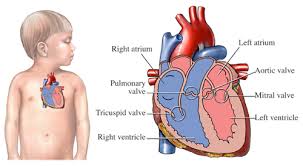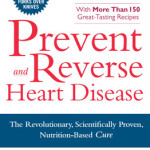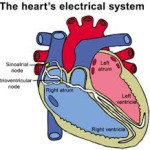 The heart pump is a muscle that also must be fed oxygen. It doesn’t pick up the oxygen while the blood is in the chambers but instead receives oxygen through the coronary arteries, which surround the heart. These coronary arteries are what we try to keep clean through a balanced diet, exercise, stress reduction, sleep and plenty of clean water.
The heart pump is a muscle that also must be fed oxygen. It doesn’t pick up the oxygen while the blood is in the chambers but instead receives oxygen through the coronary arteries, which surround the heart. These coronary arteries are what we try to keep clean through a balanced diet, exercise, stress reduction, sleep and plenty of clean water.
When other small arteries become clogged or develop a clot part of a muscle may die and cause pain. Or the person may experience difficulty with walking when the blocked arterial supply is to the lower extremities. But when the coronary arteries, or arteries that feed the heart, become blocked the pump begins to die leading to damage to the heart muscle and a heart attack.
There are two main coronary arteries – the left main and right coronary arteries. The left main coronary artery divides further to two other arteries each supplying the heart muscle with life sustaining blood and oxygen.
The coronary arteries can become blocked by fats, triglycerides and the reaction to stress and poor nutrition. This blockage will result in pain with exertion (often called angina). This can progress to unstable angina when the chest pain occurs with less exertion and the coronary arteries become more blocked. A heart attack happens when very limited amount of blood can get through the arteries and the heart muscle becomes permanently damaged.
How the heart works to keep the blood pumping is a function of muscle contraction, electrical stability and oxygen supply to the heart pump. Without all three functions working perfectly the heart will falter and possibly fail. It is our responsibility to provide this 10 ounce pump the nutrition, rest, exercise and water it requires to keep our bodies functioning well for years.
Resources:
MayoClinic: Heart Disease
http://www.mayoclinic.com/health/circulatory-system/MM00636
National Heart Lung and Blood Institute: How the Heart Works
http://www.nhlbi.nih.gov/health/health-topics/topics/heartmurmur/heartworks.html
LifeBeat: How Your Heart Works
http://www.bostonscientific.com/lifebeat-online/heart-smart/how-your-heart-works.html
KidsHealth: Your Heart and Circulatory System
http://kidshealth.org/kid/htbw/heart.html
Yale-New Haven Hospital: How the Heart Works
http://www.ynhh.org/heart-and-vascular-center/heart_works.aspx



Leave a Reply